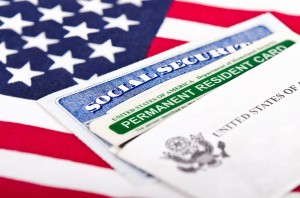Interviews for Green Card Process Will be More Frequent
Author: New York Immigration Attorney Alena Shautsova
Several months after President Trump took office, it can be said that Immigration enforcement is steering in the direction of tightening the rules and enforcement. So far, the regulations and laws have not been changed much, but was is changing is the way the laws and regulations are administrated.
For example, USCIS has recently announced that it will start calling for interview all employment based green card applicants, as well as derivative asylum applicants ( form I 730). Previously, such applications were decided on paper without meeting of the applicants. Now, an interview will be a must. In addition, USCIS stated that it will also expand the interview for other types of permanent resident applications.
Another change that came is that now, advance parole (form I 131) has to be applied for and received in the United States. If a person leaves the United States prior to receiving the approval, such an application will be considered abandoned.
President Trump administration is also likely to end DACA program. It is unclear how this program will be ended: with or without a grace period, with or without referring all beneficiaries to ICE…
It means, that now then ever, an applicant will have to gt prepared for the interview to make sure that he/she will be able to overcome any and all doubts an officer have and prove his/her eligibility. A preparation for an interview starts with reviewing of the eligibility requirements, documents, and of course, a consultation with an attorney who will try to foresee and prevent likely issues. It is important to choose an attorney who is familiar with the recent USCIS “trends” and who can advocate for her client zealously.


